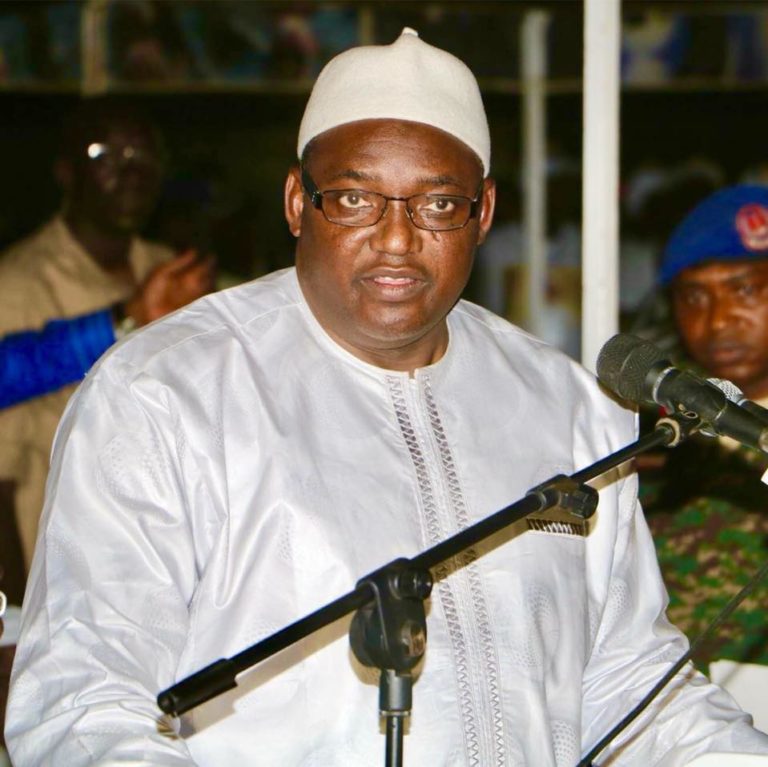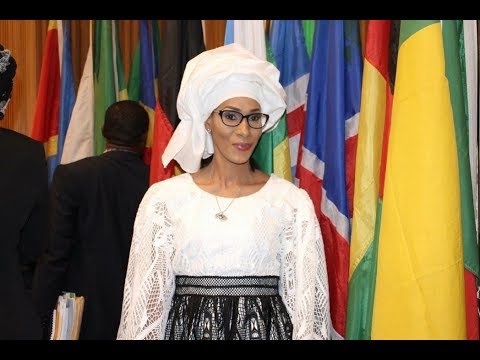I have reviewed the Semlex contract signed in July 2018 and I cannot but wonder why and how on earth could a government in an impoverished country like the Gambia enter such a deal. The details of this contract clearly do not benefit the Gambia in anyway. The contract does not build national capacity while it fails to ensure protection of national data.
For example, Article 6 of the contract concerns revenue sharing between the two parties whereas the Government gets 40% and Semlex gets 60% of profits. This means for every ID card produced and costing D450, the Government makes only D180 while Semlex makes D270. The contract has not given any reasons as to why this revenue sharing arrangement. This is even more mindboggling where Semlex is not required to pay any tax for the entire duration of the contract.
Secondly Semlex will not pay customs duties as per Article 7. Thirdly staffs that will work for the company are to be paid by the Gambian Government as per Article 6. Why is this so? Let’s bear in mind that Semlex is giving no charity to the Gambia. It is a private company seeking profit, yet our Government has decided to give them free space so that they do not bear any costs but only to make profit free of charge. Even the bonus the company should pay to the staffs have not been specified as to how much and how often.
Article 7 went further to provide huge tax and customs exemptions by first giving the company Special Investment Certificate (SIC). This so-called investment promotion strategy is intended to give tax rebates to attract foreign investors who invest at least 250 thousand US dollars in the country. But how much is Semlex investing when the contract protects Semlex, under 9 from Government ‘interference’ as it seeks to find finances to fund the project.
I am totally against SIC for foreign investors because by giving such incentives to them we give them undue advantage while at the same time disadvantaging the growth and development of local business. Secondly in most cases these foreign businesses do not create any signification employment opportunities while they also underpay their workers. Yet they enjoy five years of tax-free business which is nothing other than making super profits at the expense of national development. I strongly hold that any foreign business wishing to invest in the Gambia must pay their full share of taxes. But SIC merely means inviting foreigners to come to your country just to make profit without giving back anything to the country.
Article 9 of the contract gives liberty to Semlex to finance this project anyhow without any Government oversight. This makes therefore the project a purely commercial venture for Semlex which is the very reason the cost of the document is expensive. Hence for Semlex this contract is about investment to make profit. D450 is not within the means of majority of Gambians who now face potential food crisis. National documents cannot be a matter of profit.
Article 12 of the contract concerns technology transfer in which Semlex is required to transfer technology and skills to the Government. The contract did not specify which particular department or agency of Government will be the beneficiary.
One would have imagined that the Government would have identified at the outset a particular Government outfit to be the partner with Semlex so that they are routinely trained and empowered during project implementation.
This agency could be any existing relevant public institution, or a totally new technology public company to be created for that purpose. This way the Government would have built national capacity in that area hence ensure effective technology transfer.
But according to this contract one wonders how this technology transfer would be done and to who when Semlex has already hired private individuals as its agents and operates within Immigration offices. Where is the coordination and plan therefore for technology transfer?
Under Article 13 Semlex is required to protect all data which is said to belong to the Government. But the sad fact is that the Gambia Government has no capacity to monitor and prevent Semlex from sharing data to third parties or giving national documents to non-Gambians. Remember, Semlex have done this in the Comoros and Congo hence why risk giving such a notorious company our data?
Article 16 is the termination clause. The tragedy of this clause is that it has tied the hands of the Government from terminating the contract. The contract only considers termination ‘without cause’ which means there is no space for ‘termination with a cause’. Clearly Semlex will not terminate this contract because they benefit 100%. Hence the only party that may have cause to’ terminate is the Gambia Government. But where the contract provides no space for termination with a cause’ but only says termination ‘without cause’ which is punishable then the Government cannot therefore terminate because any termination will have to have a cause!
Hence Article 16 therefore means the Government is forced to remain in this contract simply because the contract makes no contemplation or provides no space or possibility of termination with a cause. Furthermore, what is ‘without a cause’? who determines that cause’? the Government or Semlex? The contract has not determined that anywhere.
Why should therefore anyone sign a contract that ties your hand? The Government should have objected to this provision (Art. 16.1) to remove ‘without a cause’ so that all parties are at liberty to terminate the contract with or without a cause, which is even subjective, and bear the costs therefrom for that termination.
This contract is wrong, disadvantageous and expensive for the Gambia Government and her citizens on all fronts. Semlex is the one and only party to gain from this contract while imposing unbearable costs on citizens and threatening national security. The National Assembly must therefore summon the Vice President in the name of the President to answer to fundamental questions about this contact with the purpose of terminating it before huge resources are spent.
The first question to ask is why the Government should agree to terminate the previous contract in the first place yet went ahead to sign the same contract again with this company. Comparing the two contracts it is obvious that the only qualitative difference is the revenue sharing deal. In the previous contract the arrangement was 70:30 and in this new one it is 60:30 for Semlex and Government. Both deals are bad for the Gambia.
For the Gambia Our Homeland



















African Entrepreneurs to converge for largest entrepreneurs’ forum
Africa’s leading entrepreneurship-focused philanthropic organisation, the Tony Elumelu Foundation (TEF), has announced October 25, 2018, as the date for its 4thannual TEF Entrepreneurship Forum.
The largest gathering of African entrepreneurs and the broader entrepreneurship ecosystem will unite over 5,000 entrepreneurs, global investors, leaders from the African public and private sectors and developmental organizations at the Federal Palace Hotel, Lagos.
The event is a unique opportunity to generate ideas, forge networks and bring policymakers and the private sector together, in a spirit of robust debate and interaction. The 2018 cohort from the Tony Elumelu Entrepreneurship Programme, as well as mentors and partners, will be present, as the culmination of their intensive twelve-week induction.
Five Gambian entrepreneurs have been listed in the 1000 African entrepreneurs selected for the 2018 Tony Elumelu Foundation programme announced early this year.
The Foundation announced that Almameh Manneh- agribusiness, Bakau Dem- Energy/Power Generation, Bankey Oliver Charles N’jie- ICT, Bubacarr J.B. Touray- agribusiness and Chan Mendy- Fashion will participate in the African founded 21st century philanthropic organisation programme. The Foundation is committed to entrepreneurship development and applications were received from over 150, 000 entrepreneurs.
Over the past three years, some other promising Gambian entrepreneurs including Momarr Mass Taal, Mbadiba Cham, Gabriel Gomez, Kaw Yerro Cham and Kujeh Kah have all benefited from the foundation’s programme.
In keeping with the Foundation’s track record―most recently with President Macron of France―of bringing politicians face to face with the new generation of young business women and men shaping Africa, the Forum will include an interactive session with President Uhuru Kenyatta of Kenya and President Nana Akufo-Addo of Ghana, moderated by TEF Founder, Tony O. Elumelu.
The Forum, according to TEF, will also feature the launch of the TEFConnect, the world’s largest digital platform for African entrepreneurs, dedicated to connecting African entrepreneurs and the entrepreneurship ecosystem.
Founder, Tony O. Elumelu, CON, stated: “In just four years, we have directly impacted 4,460 entrepreneurs, and we are beginning to see the results – job creation, ripple effects, but most importantly a recognition that Africa’s economic well-being is driven by entrepreneurs: female and male, large and small – they are the engine of our continent’s transformation. We will be championing and celebrating them.
This year, we are truly achieving scale and impact; we received over 150,000 applications in 2017 alone, up from 20,000 applications in 2015. We are now calling on the current generation of African success stories and others to partner with us to see how we can all further create impact, genuinely transform millions of lives and increase the number of inspiring stories we will be hearing in Lagos”.
TEF CEO, Parminder Vir OBE stated: “The TEF Entrepreneurship Forum is the only event across the continent that brings together the complete African entrepreneurship ecosystem, demonstrating our commitment to capturing the whole continuum – from the entrepreneurs themselves, governments who must provide enabling environments, to capital, advice and perhaps most importantly access and network”.
Inspired by Tony Elumelu’s economic philosophy of Africapitalism and his vision to institutionalize luck and democratize opportunity for a new generation of African entrepreneurs, the Tony Elumelu Foundation has implemented one of the most ambitious entrepreneurship programmes globally.
Launched in 2015, the Programme is a 10-year, $100 million commitment to identify, train, mentor, and fund 10,000 entrepreneurs. Its goal is to invest in businesses that will generate at least 1,000,000 new jobs and contribute at least $10 billion in new annual revenues across Africa.
In its 4th year, the TEF Entrepreneurship Programme has empowered 4,460 entrepreneurs with a total investment of USD20million; 4,000 funded directly by the Foundation and 460 have been funded by partners.